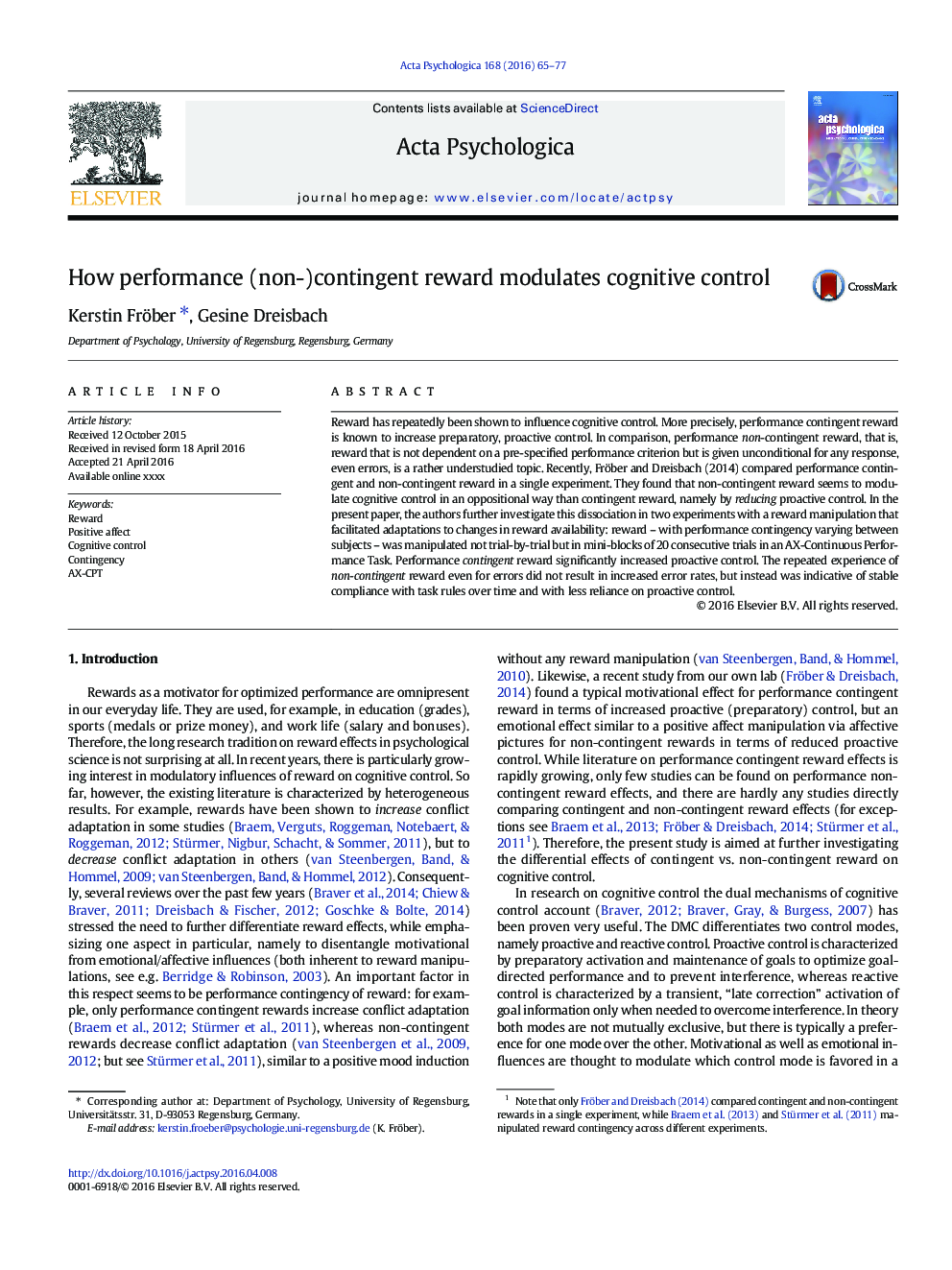| Article ID | Journal | Published Year | Pages | File Type |
|---|---|---|---|---|
| 7277062 | Acta Psychologica | 2016 | 13 Pages |
Abstract
Reward has repeatedly been shown to influence cognitive control. More precisely, performance contingent reward is known to increase preparatory, proactive control. In comparison, performance non-contingent reward, that is, reward that is not dependent on a pre-specified performance criterion but is given unconditional for any response, even errors, is a rather understudied topic. Recently, Fröber and Dreisbach (2014) compared performance contingent and non-contingent reward in a single experiment. They found that non-contingent reward seems to modulate cognitive control in an oppositional way than contingent reward, namely by reducing proactive control. In the present paper, the authors further investigate this dissociation in two experiments with a reward manipulation that facilitated adaptations to changes in reward availability: reward - with performance contingency varying between subjects - was manipulated not trial-by-trial but in mini-blocks of 20 consecutive trials in an AX-Continuous Performance Task. Performance contingent reward significantly increased proactive control. The repeated experience of non-contingent reward even for errors did not result in increased error rates, but instead was indicative of stable compliance with task rules over time and with less reliance on proactive control.
Related Topics
Life Sciences
Neuroscience
Cognitive Neuroscience
Authors
Kerstin Fröber, Gesine Dreisbach,
